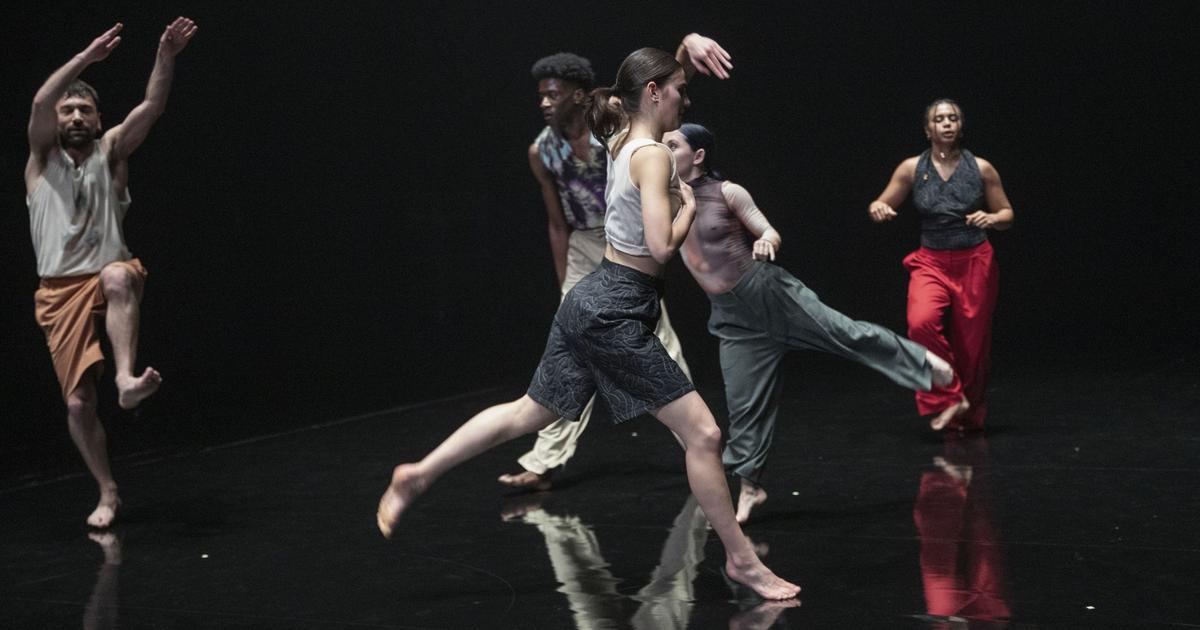Since 1982 no band made up of women has managed to reach number 1 on the US Billboard, perhaps the most influential chart of musical hits.
The Go-Go's, the
punk-rock group
formed in the late seventies by five musicians and songwriters, holds the title.
A few years earlier, between the sixties and seventies, Pauline Oliveros and Laurie Spiegel made electronics a genre alien to male approval, although the sound of machines is more identified with men, such as those behind the cult band Kraftwerk or the more commercial side of David Guetta.
These women - and a few more - are part of the programming of In-edit, the musical documentary film festival that this edition will be exclusively digital and is held from October 29 to November 8.
"We are not a music festival", corrects Luis Hidalgo, its artistic director, "but a festival that teaches us how we are through music."
As Bob Dylan explains the American society of the 1960s, the work of many women contributes to understanding the places from which they pioneered.
"At once, women and their role in history are listened to," says Hidalgo.
It is her way of clarifying that In-Edit does not navigate the new feminist wave, but rather that the social vocation that programming has run through since its origins translates into a constant presence of female voices.
Sister With Transistors
and
The Go-Go’s
are two of the documentaries directed by women, with female protagonists and narrated by women that tell two chapters in the history of music that seem to have been erased from the discos.
The Go-Go's achieved commercial success after going through the toll of addictions, line-up changes, stabbing between (supposed) friends, and surviving the exploitation that entails sticking their heads above the gang of men next door. .
They hardly knew how to play or tune: "If you're terrible, you're
cooler
", was their philosophy, that of DIY (
do it yourself
, do
it yourself
).
But they trusted that the underworld madness
of Los Angeles
punk would
cover their shortcomings.
What actually happened is that they ended up becoming professional musicians that reached Great Britain - the
punk
paradise of
the seventies and eighties - alongside Madness, The Specials and The Police.
Their sound went from noise to pop.
And while their touring companions secured the best concert schedule, they outsold and listened to them with
We Got The Beat,
which reached number 1 in 1982.
In
Sister With Transistors
there is less drugs and more engineering.
Laurie Anderson (who is often cited as Lou Reed's ex-partner, but who is much more: poet, singer,
performer
, always from an experimental perspective) is in charge of narrating this documentary.
The images of Delia Derbyshire and Daphne Oram in the BBC laboratories creating music between machines through cut and paste on magnetic tapes in the 1940s remind us that electronics were able to bypass gender restrictions since humans discovered that sounds were not just coming from musical instruments.
The film about the pioneers of electronics aims to "repair a historical injustice," according to the official description.
In this case, the legacy of Bebe Barron, Pauline Oliveros, Maryanne Amacher and Eliane Radigue.
His work, like that of The Go-Go's, has tiled that of Joan Jett, Patti Smith, Laurie Anderson and even that of María Dolores Pradera.
The difference, says Hidalgo, is that "many times, when Smith's work is validated, it is because he spits as if he were a man."
Pioneers
The category of pioneers has not served either for decades later to make their names shine like those of their male counterparts.
“They were pioneers because other musicians have quietly followed their path.
Pioneer does not always mean popular, ”explains Hidalgo.
"The glory is usually taken by white men."
This is reflected in
My Darling Vivian
, another of the In-Edit documentaries, which recalls Johnny Cash's first wife.
The mother of his three daughters, the one who stayed home raising and doing the rest of the housework while he was successful in music.
"It was normal and ordinary in the most positive sense of the term," says the artistic director.
In-Edit is full of "normal women".
The French filmmaker Marie Losier, honored in this edition, has made a selection of shorts, in addition to directing the documentary
The Ballad of Genesis and Lady Jaye
, the musical couple formed by Genesis P Orridge, a key figure in industrial music with Psychic TV and Throbbing Gristle, who passed away in March, who showed love for herself by altering her body with the scalpel and thus questioning the idea of gender.
In
The Love Parade case
, a memory is given to one of the victims, a forgotten woman from Tarragona.
Or the portrait of Júlia Colom in
Semper saidus
that explains how a young Mallorcan woman tries to discover how popular music can be made, in her case, the tunes of the island, in 2020.
There is a moment in The Go-Go's documentary that its first manager, a woman who will be replaced by a group of “professional” men, contacts a multitude of record companies in search of a contract.
You always get the same answer: "Girl bands don't sell records."
That manager insisted.
And the Go-Go's did it so that later the Spice Girls, Cardi B, Janelle Monáe, FKA Twigs, Lizzo, Rosalía and many others did.

/cloudfront-eu-central-1.images.arcpublishing.com/prisa/P77O4ONNH5EF7B2G54GP5TUDNI.jpg)

/cloudfront-eu-central-1.images.arcpublishing.com/prisa/WGGYQRRT55FZ5JCXE3P4MZ2XGI.jpg)
/cloudfront-eu-central-1.images.arcpublishing.com/prisa/PSSN4LWVVNHJNOLH63BUDBASLY.jpg)




